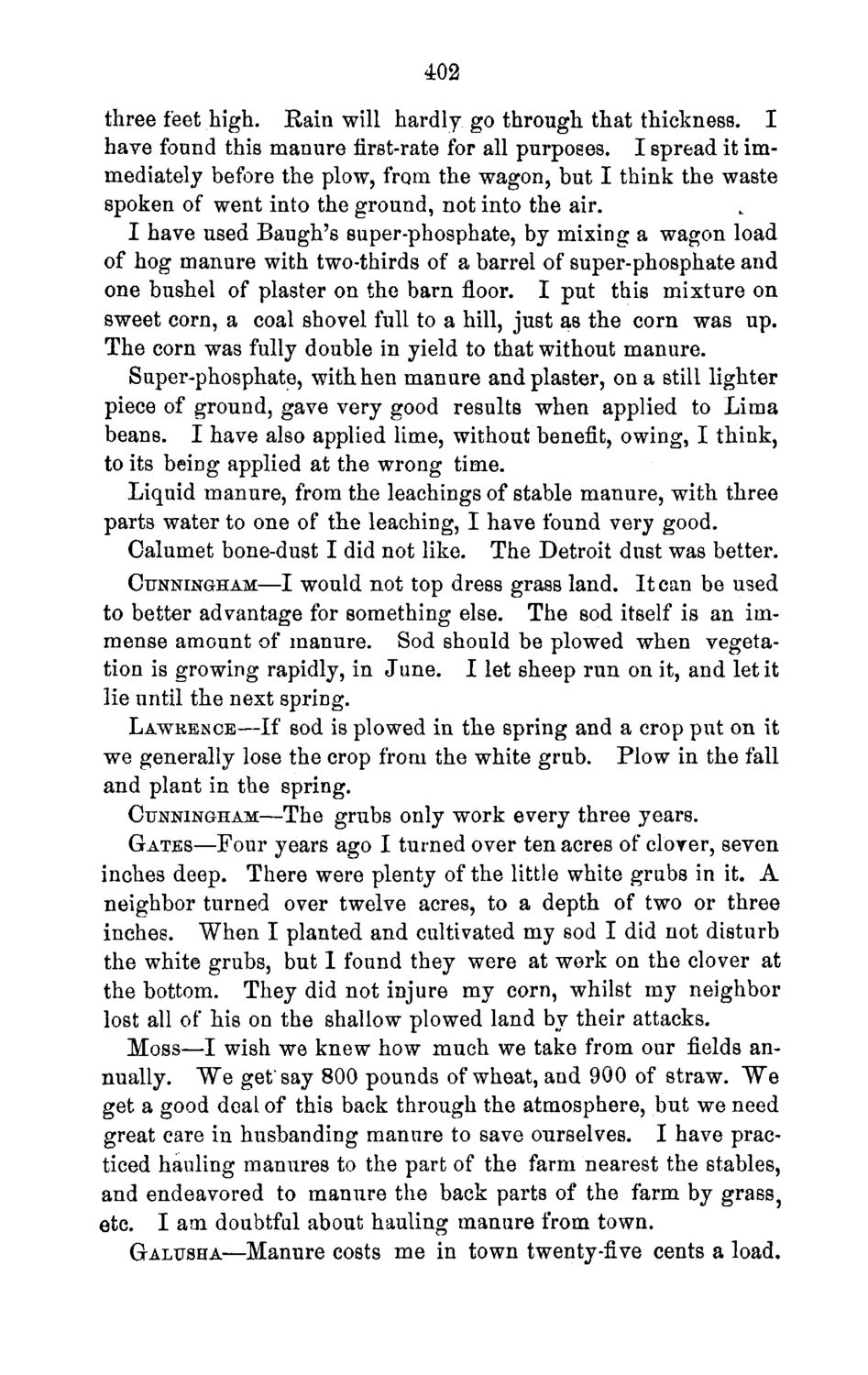| |
| |
Caption: Board of Trustees Minutes - 1870
This is a reduced-resolution page image for fast online browsing.

EXTRACTED TEXT FROM PAGE:
402 three feet high. Rain will hardly go through that thickness. I have found this manure first-rate for all purposes. I spread it immediately before the plow, from the wagon, but I think the waste spoken of went into the ground, not into the air. I have used Baugh's super-phosphate, by mixing a wagon load of hog manure with two-thirds of a barrel of super-phosphate and one bushel of plaster on the barn floor. I put this mixture on sweet corn, a coal shovel full to a hill, just as the corn was up. The corn was fully double in yield to that without manure. Super-phosphate, with hen manure and plaster, on a still lighter piece of ground, gave very good results when applied to Lima beans. I have also applied lime, without benefit, owing, I think, to its being applied at the wrong time. Liquid manure, from the leachings of stable manure, with three parts water to one of the leaching, I have found very good. Calumet bone-dust I did not like. The Detroit dust was better. CUNNINGHAM—I would not top dress grass land. I t can be used to better advantage for something else. The sod itself is an immense amount of manure. Sod should be plowed when vegetation is growing rapidly, in June. I let sheep run on it, and let it lie until the next spring. LAWKENCE—If sod is plowed in the spring and a crop put on it we generally lose the crop from the white grub. Plow in the fall and plant in the spring. CUNNINGHAM—The grubs only work every three years. GATES—Four years ago I turned over ten acres of clover, seven inches deep. There were plenty of the little white grubs in it. A neighbor turned over twelve acres, to a depth of two or three inches. When I planted and cultivated my sod I did not disturb the white grubs, but 1 found they were at work on the clover at the bottom. They did not injure my corn, whilst my neighbor lost all of his on the shallow plowed land by their attacks. Moss—I wish we knew how much we take from our fields annually. We get* say 800 pounds of wheat, and 900 of straw. W e get a good deal of this back through the atmosphere, but we need great care in husbanding manure to save ourselves. I have practiced hauling manures to the part of the farm nearest the stables, and endeavored to manure the back parts of the farm by grass, etc. I am doubtful about hauling manure from town. GALUSHA—Manure costs me in town twenty-five cents a load.
| |